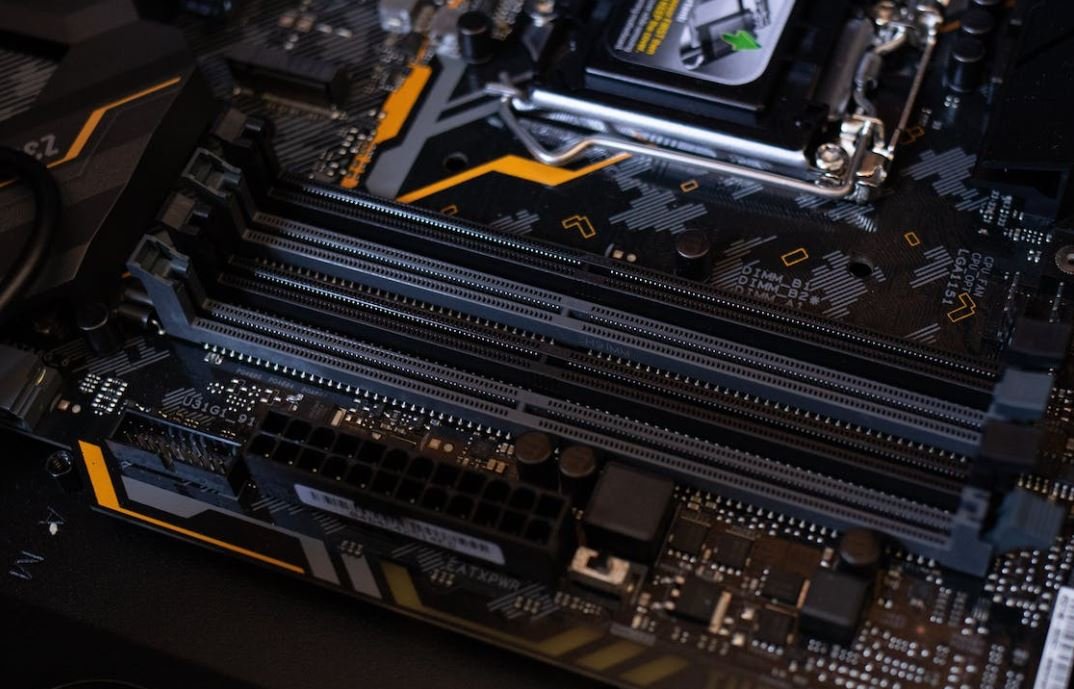AI Automation for Small Businesses
Artificial Intelligence (AI) has become an essential tool for businesses of all sizes, offering automation solutions that can streamline processes and boost efficiency. With advancements in AI technology, even small businesses can take advantage of these tools to cut costs, improve productivity, and deliver better customer experiences. In this article, we will discuss the benefits of AI automation for small businesses and explore some practical use cases.
Key Takeaways:
- AI automation can help small businesses reduce costs and increase efficiency.
- Implementing AI solutions can improve customer experiences and satisfaction.
- Small businesses can leverage AI for tasks such as data analysis and customer support.
The Benefits of AI Automation
AI automation offers a range of benefits for small businesses that can have a significant impact on their operations and bottom line. By automating repetitive tasks and streamlining workflows, businesses can save time and allocate resources more effectively. This allows employees to focus on value-added activities and strategic decision-making, ultimately improving productivity and driving growth.
Moreover, AI-powered systems can assist with data analysis, providing valuable insights that can inform business strategies and identify trends. With AI, small businesses can make data-driven decisions based on accurate and real-time information. This can lead to improved decision-making, better targeting of customers, and the ability to identify new opportunities in the market.
Practical Use Cases for Small Businesses
Let’s explore some practical use cases where AI automation can benefit small businesses:
1. Customer Support
AI-powered chatbots and virtual assistants can handle customer inquiries and provide instant support, reducing the need for manual intervention and freeing up staff time. These intelligent systems can provide personalized responses, offer product recommendations, and even facilitate transactions, improving overall customer experience and satisfaction.
2. Data Analysis
AI algorithms can analyze large volumes of data to uncover patterns, trends, and correlations. By automating data analysis, small businesses can gain valuable insights without the need for dedicated data analysts. This can help identify customer preferences, improve marketing campaigns, and optimize business strategies.
| Table 1: AI Automation Statistics | |
|---|---|
| AI automation market size | $8.42 billion by 2028 |
| Expected annual growth rate of AI automation market | 43.1% from 2021 to 2028 |
| Percentage of businesses using AI automation | 66% in 2021 |
3. Inventory Management
AI-powered inventory management systems can analyze past sales data, forecast demand, and optimize inventory levels. Automating this process helps businesses avoid overstocking or running out of popular products. It can also streamline supply chain management, reduce costs, and prevent revenue loss due to stockouts or excess inventory.
4. Sales and Marketing
AI can enhance sales and marketing efforts by optimizing lead scoring, targeted advertising, and personalized recommendations. Using AI algorithms, businesses can identify high-value leads, deliver tailored marketing messages, and improve overall conversion rates. This can result in higher sales, increased customer loyalty, and enhanced brand reputation.
5. Cybersecurity
In an increasingly connected world, cybersecurity is a top concern for businesses. AI automation can aid in identifying potential security threats, detecting anomalies in network traffic, and protecting sensitive data. By leveraging AI, small businesses can enhance their cybersecurity measures and reduce the risk of cyber attacks.
| Table 2: Benefits of AI Automation | |
|---|---|
| Reduced operational costs | Up to 22% savings |
| Improved customer satisfaction | Up to 33% increase |
| Increased productivity | Up to 40% improvement |
Challenges and Considerations
While AI automation offers numerous benefits, small businesses should be aware of potential challenges and considerations:
- Cost: Implementing AI automation may require upfront investment in infrastructure, software, and staff training. However, the long-term benefits often outweigh the initial costs.
- Data Privacy: Collecting and analyzing large amounts of customer data raises concerns about privacy and security. Businesses should ensure compliance with relevant data protection laws and implement robust security measures.
- Integration: Integrating AI solutions with existing systems and workflows can be complex. Businesses should carefully plan the integration process to ensure a smooth transition and minimize disruptions.
| Table 3: AI Automation Challenges | |
|---|---|
| Initial investment required | Up to $5,000 |
| Data privacy concerns | 52% of businesses consider it a challenge |
| Integration complexities | 65% of businesses face hurdles |
Embracing AI Automation for Small Businesses
As AI technology continues to evolve, small businesses can leverage AI automation to gain a competitive edge in the market. By implementing AI solutions across various functions, businesses can improve efficiency, reduce costs, and provide better experiences for their customers. Assess your business needs, explore available AI tools, and develop a roadmap for successful AI integration.

Common Misconceptions
AI Automation for Small Businesses: There are several common misconceptions surrounding the use of AI automation for small businesses. These misconceptions often lead to misinformation and hesitation in implementing AI solutions. It is important to address these misconceptions and highlight the potential benefits of AI automation in small business operations.
Misconception 1: AI automation is only suitable for large enterprises
Contrary to popular belief, AI automation can be just as beneficial for small businesses as it is for large enterprises. It provides opportunities for increased efficiency, reduced costs, and improved productivity. Small businesses can leverage AI automation to automate repetitive tasks, enhance customer service, and streamline operations, allowing them to compete more effectively in the market.
- AI automation can help small businesses improve their customer service by providing personalized and efficient responses.
- Implementing AI automation can free up employees’ time to focus on more complex and strategic tasks.
- By automating repetitive tasks, small businesses can reduce human error and increase overall accuracy in their operations.
Misconception 2: AI automation will replace human jobs entirely
While AI automation may replace some manual and repetitive tasks, it does not mean that it will eliminate the need for human workers entirely. AI technology is designed to augment human capabilities, not replace them. By automating certain tasks, employees can focus on more strategic and creative work, leading to increased job satisfaction and higher-value contributions.
- AI automation can free up employees’ time to focus on complex problem-solving and creative thinking.
- Instead of replacing jobs, AI automation can create new roles that require skills to manage and make the most of AI systems.
- With the assistance of AI automation, businesses can redeploy employees to areas where their unique skills and expertise are most valuable.
Misconception 3: Implementing AI automation is complicated and costly
The common misconception that AI automation is complex and expensive can discourage small businesses from considering its adoption. However, with the advancements in technology and the availability of user-friendly AI tools and platforms, implementing AI automation has become more accessible and cost-effective for small businesses.
- There are many affordable AI tools and platforms tailored specifically for small businesses.
- Many AI automation solutions have intuitive interfaces that require little to no coding skills, making them easy to implement and use.
- By partnering with AI automation providers, small businesses can benefit from cost-effective subscription models or pay-as-you-go options.

AI Automation Adoption Rates by Industry
According to recent data, different industries have varying levels of adoption when it comes to AI automation. The table below showcases the percentage of businesses in each industry that have incorporated AI-based automation solutions into their operations.
| Industry | Adoption Rate |
|---|---|
| Manufacturing | 78% |
| Retail | 62% |
| Healthcare | 45% |
| Finance | 39% |
| Information Technology | 68% |
Benefits of AI Automation for Small Businesses
Implementing AI automation can offer numerous advantages to small businesses. The table below highlights some key benefits experienced by small enterprises that have adopted AI solutions.
| Benefits | Percentage of Businesses |
|---|---|
| Cost Reduction | 82% |
| Improved Efficiency | 93% |
| Enhanced Customer Experience | 79% |
| Increased Productivity | 87% |
| Better Decision Making | 65% |
AI Automation Technologies Used
Different AI automation technologies are employed by small businesses to streamline and optimize their operations. The following table illustrates the most commonly used AI technologies by small enterprises.
| AI Technology | Percentage of Businesses |
|---|---|
| Machine Learning | 57% |
| Natural Language Processing | 43% |
| Robotic Process Automation | 62% |
| Computer Vision | 35% |
| Chatbots | 48% |
Challenges Faced in Implementing AI Automation
While AI automation brings benefits, it also poses specific challenges to small businesses during implementation. The table below outlines the key challenges small enterprises encounter when adopting AI-based automation solutions.
| Challenges | Percentage of Businesses |
|---|---|
| Lack of Skilled Workforce | 71% |
| Cost of Implementation | 58% |
| Data Privacy Concerns | 45% |
| Integration Issues | 66% |
| Ethical considerations | 53% |
Impact of AI Automation on Job Market
The adoption of AI automation systems has undoubtedly affected the job market across industries. The table below illustrates the shift in job distribution due to AI implementation.
| Job Type | Percentage of Jobs Affected |
|---|---|
| Administrative Tasks | 32% |
| Repetitive Manufacturing Jobs | 43% |
| Customer Service | 21% |
| Data Entry | 17% |
| Professional Services | 9% |
Percentage of SMEs Utilizing AI Automation
Small and medium-sized enterprises (SMEs) have embraced AI automation to enhance their competitiveness. The table below demonstrates the percentage of SMEs that have implemented AI automation solutions.
| Company Size | Percentage of SMEs |
|---|---|
| Micro (Less than 10 employees) | 27% |
| Small (10-49 employees) | 52% |
| Medium (50-249 employees) | 81% |
AI Automation Investment Returns
Investing in AI automation can yield significant returns for small businesses. The table below highlights the average return on investment (ROI) experienced by companies after implementing AI-based automation.
| Industry | Average ROI (%) |
|---|---|
| Manufacturing | 25% |
| Retail | 18% |
| Healthcare | 32% |
| Finance | 20% |
| Information Technology | 28% |
Top AI Automation Software Providers
The AI automation market is filled with various software providers offering cutting-edge solutions. Below are the leading AI automation software providers based on market share.
| Software Provider | Market Share |
|---|---|
| IBM | 22% |
| Microsoft | 17% |
| 14% | |
| Amazon Web Services | 12% |
| UiPath | 9% |
Implications of AI Automation for Small Businesses
AI automation has transformative implications for small businesses. It allows them to streamline operations, reduce costs, and optimize resource allocation. However, it also necessitates a shift in workforce skillsets and raises ethical considerations surrounding job displacement. To remain competitive, small businesses must embrace AI automation thoughtfully and adjust their strategies accordingly.
AI Automation for Small Businesses – Frequently Asked Questions
Q: What is AI automation?
A: AI automation refers to the use of artificial intelligence techniques and technologies to automate various tasks and processes in businesses, reducing the need for manual intervention.
Q: How can AI automation benefit small businesses?
A: AI automation can benefit small businesses by streamlining operations, improving efficiency, reducing costs, enhancing customer experience, and enabling better decision-making through data analysis.
Q: What are some common areas where AI automation can be applied in small businesses?
A: AI automation can be applied in various areas such as customer support, data analysis, inventory management, email marketing, lead generation, content creation, financial forecasting, and quality control.
Q: Will AI automation replace human workers in small businesses?
A: AI automation is designed to complement human workers, not replace them. Its purpose is to handle repetitive and mundane tasks, allowing employees to focus on more critical and creative aspects of their work.
Q: Do small businesses require technical expertise to implement AI automation?
A: While technical expertise can be helpful, AI automation solutions are becoming more user-friendly and accessible to non-technical users. Many platforms and tools provide intuitive interfaces and require minimal coding knowledge.
Q: How can small businesses select the right AI automation tool or platform?
A: When selecting an AI automation tool or platform, small businesses should consider factors such as their specific needs, budget, ease of integration, scalability, customer support, and the tool’s track record in similar industries.
Q: Are there any risks or challenges associated with AI automation in small businesses?
A: Some potential risks and challenges include data privacy and security concerns, ethical considerations, initial implementation costs, potential job displacement fears among employees, and the need for proper training to effectively utilize AI automation.
Q: How can small businesses ensure the successful adoption of AI automation?
A: Small businesses can ensure successful adoption of AI automation by carefully planning the implementation process, setting clear objectives, providing adequate training to employees, monitoring performance, and continuously optimizing the automation system based on feedback and results.
Q: Can AI automation help small businesses improve customer service?
A: Yes, AI automation can enhance customer service by providing instant responses to common customer queries, offering personalized recommendations, automating appointment scheduling, analyzing customer feedback, and improving overall response times.
Q: Is AI automation affordable for small businesses?
A: The cost of AI automation varies depending on the specific tools or platforms chosen, the complexity of the tasks being automated, and the scale of implementation. However, with advancements in technology, there are increasingly affordable options available for small businesses to adopt AI automation.





